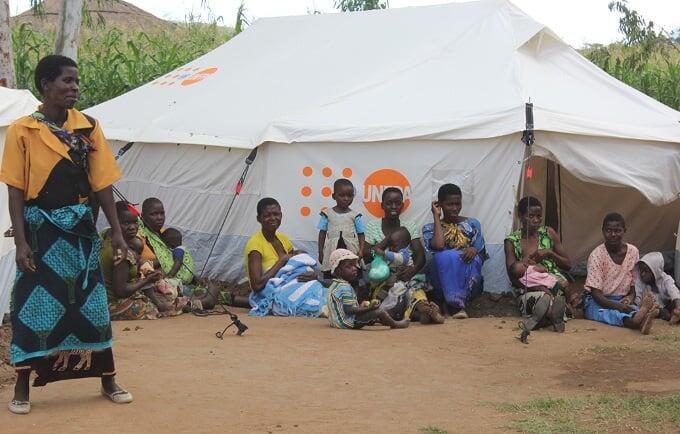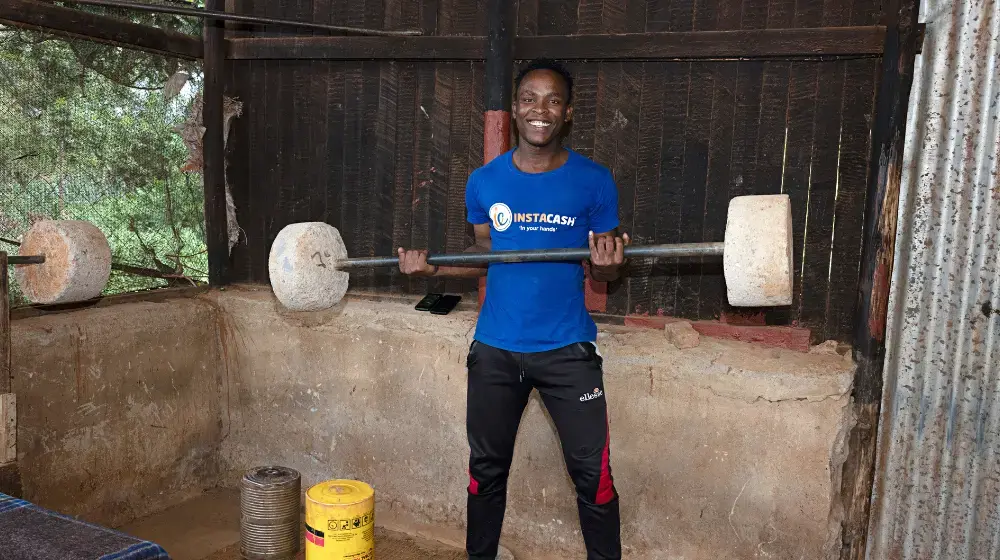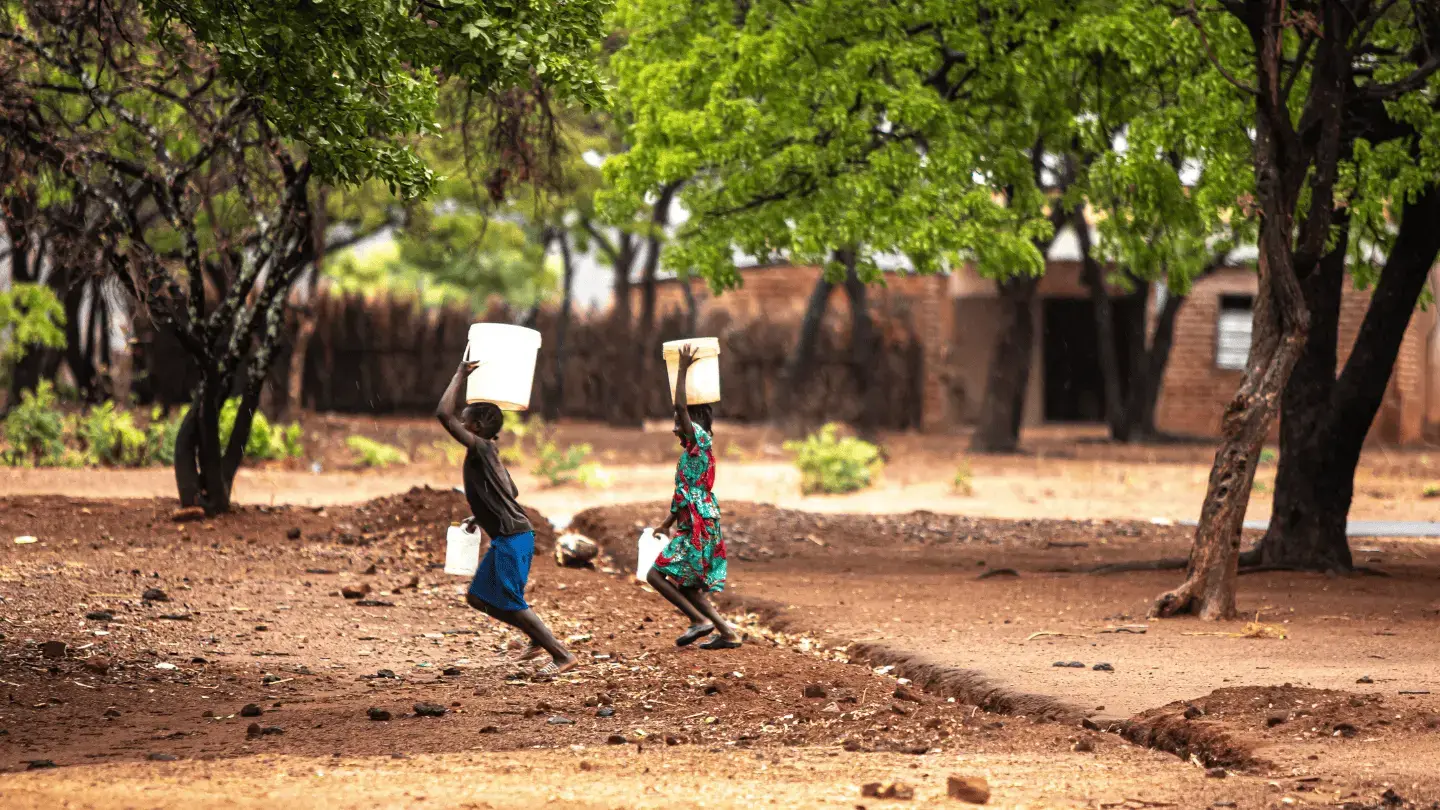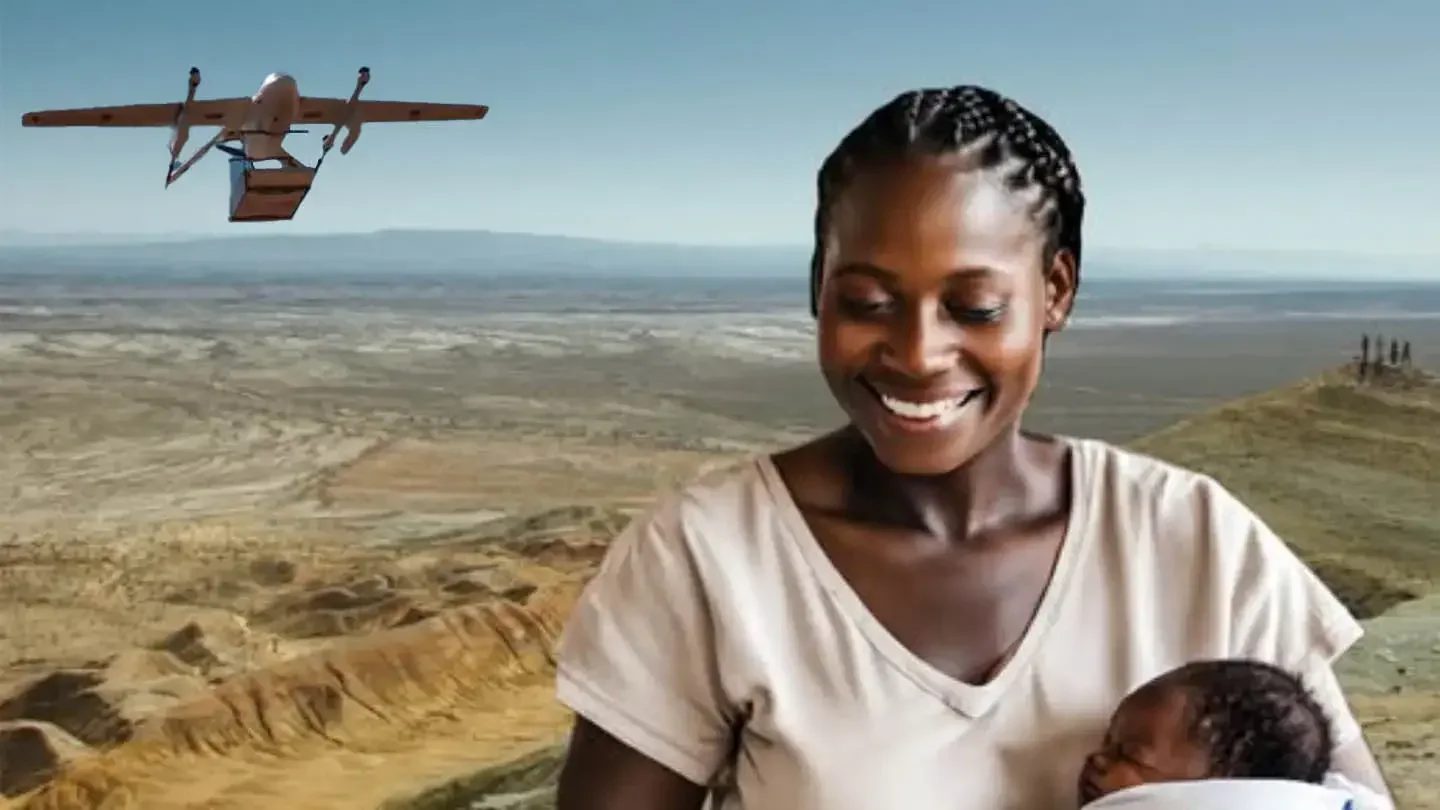CHIKWAWA, Malawi, 5 March – This year’s International Women’s Day is one that 43-year-old Mary, an Internally Displaced Person (IDP) in Jombo Camp, will never forget. While commemorative activities were being held at a venue in Phalombe, one of the districts most affected by the floods that have displaced about 230,000 people in Malawi, Mary was brutally attacked by her husband.
Along with thousands of others she had fled for her safety and taken refuge in the camp. Chikwawa is one of four districts devastated by the floods that have hit the south of the country since heavy rains began in January. The disaster has left over 100 people dead and many more injured or missing.
Mary, a mother of 11 children, is her husband’s third wife. He resides with his seventh wife and was not with her in the camp. On that fateful day she was invited to share food with a friend who has a house near Jombo camp. Shortly after she, her friend and two other women finished eating, her husband appeared with a knife in his hand. He accused her of having affairs and began beating her.
Men playing football heard her screams
Mary's screams for help were heard by a group of young men who were playing football at a nearby school. As they were apprehending her husband he bashed his head against her forehead, leaving a deep gash. He was arrested by the camp’s police and was taken to Chikwawa District Police Station where he was kept overnight. Mary was rushed to a nearby private hospital but when she was not able to pay the Mk4,500 ($10) required to have her wound stitched, she was given only pain killers and admitted overnight. In the morning she was referred to a clinic where she received free treatment and was discharged.
That day, she was met by UNFPA’s gender-based violence coordinator in the camp and received counselling and support. By then, her husband had been released because she had decided not to press charges. “Let him be free to go and live with his other wife because I no longer want him and I am afraid that one day, he will kill me,” she said.
In emergency situations of this nature, women and girls have minimal or limited options for immediate protection from gender-based violence (GBV). Emergencies can increase people’s vulnerability to abuse at a time when they are already disadvantaged by the after effects of the crisis. Limited access to resources such as food heightens their sense of vulnerability, creating conditions that favour abuse and sexual exploitation.
Safe spaces created for women and girls
In response, safe spaces have been created for women and girls at the camps, under the leadership and coordination of the Ministry of Gender, Children, Disability and Social Welfare. The objective of these spaces is to provide an area where people living in the camps can report abuse cases and receive counselling for gender-based violence. In addition to sensitization on GBV carried out in the camps in general, related issues can be discussed in these spaces, which also provide room for recreation activities for the women and girls. Materials such as knitting needles, wool, and thread for crocheting and sewing are provided to help them learn new skills. In addition, adult literacy classes are offered.
UNFPA has provided 50 tents for the establishment of safe spaces in three districts in the south. The Fund works through three local NGOs to ensure that women and girls are able to report sexual and gender-based violence and sexual exploitation and abuse in confidence in these spaces.
The safe spaces are managed by a partnership between UNFPA and various organizations, including YONECO in Zomba and Phalombe, CAVWOK in Chikwawa and WolREC in Nsanje. The spaces are to be manned by GBV committees in each camp. It is anticipated that these committees will work closely with the Community Policing Forums that operate within the camps to make referrals to the police and judiciary.
Camp conditions checked weekly
UNFPA has provided support to the District Social Welfare Officers and the District Community Development Officer with the establishment of GBV Task Forces at district level. These carry out weekly visits to the camps to check conditions, learn the needs of the most vulnerable, and respond accordingly. They oversee the establishment of safe spaces and systems of reporting incidences of GBV within camps. They work to raise awareness of GBV as part of a prevention strategy, and check the availability of PEP kits in health centres located closest to the camps for clinical management of rape. Weekly updates are provided, including data on incidents of GBV. A reporting mechanism has also been established; this filters to all partners at district level as well as the Ministry of Gender, Children, Disability and Social Welfare for follow up and action.
Efforts are being made to strengthen the Victim Support Units (VSU) as part of the national response to combat GBV, so that women and girls are better protected from abuse, exploitation and neglect. The aim is to help survivors of GBV – including sexual, emotional and physical abuse – get better access to the appropriate social, medical and police protection services.
GBV prevention and response standardized
Through the GBV coordinator, UNFPA has worked with the District Social Welfare Offices (DSWOs) in six of the most affected districts to formalize structures to ensure standardization of approaches to GBV prevention and response. In Mangochi, support has been extended to Victim Support Committees at camp level. The members include Community Police, Child Protection Officers, Extension Workers, Health Surveillance Assistants and Group Village Headmen. Victim support units are also supported by UN Women.
The work of the UN in response to the floods in Malawi has been made possible due to the contributions of the UK’s Department for International Development (DFID), the Government of Norway and Flanders.
By Stella Twea, with input from Hope Ngwira




